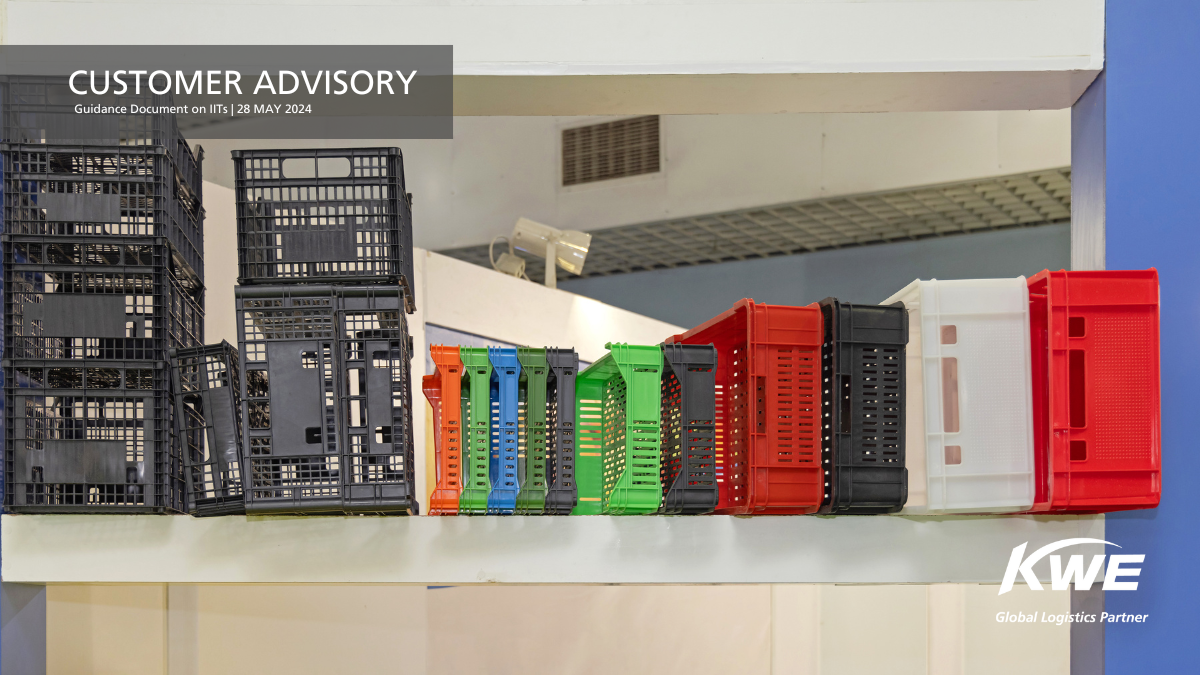Quote
Guidance Document on IITs

Guidance Document on IITs
What do polypropylene bags, reusable containers, plastic milk crates, general merchandise totes, collapsible steel racks, tanks, cylinders, skids, etc. have in common?
They can all be considered as Instruments of International Traffic and therefore eligible for duty free treatment!
The Customs Convention on Containers, 1972, provided for the temporary importation of containers, used for the international carriage of goods, to be free of import duties and taxes, and without the production of customs documents or security, subject to re[1]exportation within 3 months, and could be extended by the competent Customs authority. The Convention also provided for the approval of containers under customs seal (these approval provisions are identical to those in the Convention on the International Transport of Goods Under Cover of TIR Carnets – the TIR Convention, 1975). These rules were subsequently further expanded upon.
The specific rules applied by U.S. Customs & Border Protection are now detailed in the Informed Compliance Publication on Instruments of International Traffic.
According to Section 322 of the Tariff Act of 1930, all instruments of international traffic (IIT) and vehicles shall be exempted from the applications of customs laws subject to terms and conditions and to the extent of the law prescribed by the Secretary of the Treasury. Section 10.41a of the Customs Border Protection (CBP) regulations as set out in (19 CFR §10.41a et seq.) designates the criteria for an article to qualify as an Instrument of International Traffic (IIT).
In simple layman terms, an article qualifies as an Instrument of International Traffic (IIT) if it can be shown that it is capable and suitable for repeated use and is commonly used in international traffic. According to §10.41a of the CBP regulations, IIT’s may include articles such as shipping tanks, lift vans and engine racks, empty racks and other articles that the Commissioner of Customs may designate and publish as an IIT.
In order to qualify as Instruments of International Traffic, the containers must be suitable for repeated use, must either arrive containing merchandise or arrive empty to be filled with merchandise to be exported to a foreign country, and must be covered under a continuous bond filed by either the importer or the carrier on Customs Form 301. Customs has issued rulings that the user of the IIT should be the principal on the bond, reference HQ 220204, and likewise, would be responsible for filing consumption entry, should the IIT in question remain in the U.S. for a period longer than 365 days, per HQ 114538.
Instrument of International Traffic bond, or Activity 3A, is used to cover the movements and clearances of these containers which move internationally. Without this provision, each container moved into the United States would have to be entered as a standard consumption entry and duty would be due to Customs on the container. Containers commonly used in intermodal freight (that is, freight that is moved using various modes of transportation, such as ship, truck, rail) fall into this category.
For consultation and assistance in complying with this program, you may also reach out to us at: customs_compliance_group@am.kwe.com